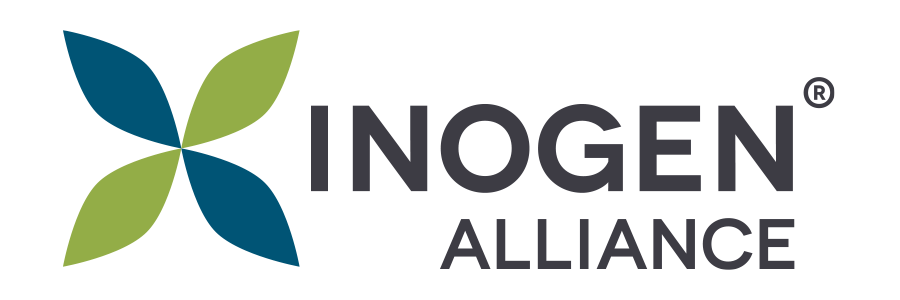8 Reasons Why Your Business Needs an EHS Audit

8 Reasons Why Your Business Needs an EHS Audit
The role that environmental, health, and safety (EHS) management plays in business has come into greater focus as governments and citizens around the globe push for greater transparency and accountability from corporations.
Today’s EHS professionals are responsible for any number of compliance, training, and risk-management duties, and their work can have a significant impact on cost-savings within an organization.
Let’s explore how EHS audits can help your organization achieve these outcomes.
EHS Objectives
The goal of your organization’s EHS program is typically two-fold:
Ensuring compliance with government and industry regulations.
Ensuring the safety and well-being of employees and the surrounding community.
To realize these goals, your EHS team must first have a baseline understanding of your organization’s environment, health, and safety practices and impact.
This baseline is revealed through conducting an EHS audit, either independently by your business or through a third party. This audit information can then be used to ensure compliance (both from a regulatory standpoint and internal standards), make necessary changes, and improve processes.
8 Reasons For an EHS Audit
Proactive audits of your organization’s EHS behaviors and protocols should be conducted annually to ensure you are remaining compliant with regulations and industry standards. More frequent audits may be necessary if your industry utilizes hazardous materials or machinery.
Here are some of the reasons why your business needs – and will benefit from – an EHS audit.
1. Local Compliance
Compliance with the local regulations is fundamental to operating a business or facility within the borders of that country.
Because there is a broad network of jurisdictions involved across the country and the globe, it can be difficult for businesses with multiple facilities to keep pace with changing regulations. Companies will either need to maintain regulatory information, or rely on EHS audit service providers that maintain regulatory databases to assist with evaluating compliance at each site.
Maintaining compliance through proactive EHS audits to ensure you’re in compliance with local regulations can save you from costly fines and work interruptions.
2. Certification requirement
Specific certifications can be required for securing operational licenses, membership to industry organizations, and instilling confidence in investors. Regular EHS audits can help to ensure you are meeting requirements for those certifications.
If your company is certified or planning to be certified with a management system such as the International Organization for Standardization (ISO) you will need to incorporate the check into your annual strategy.
These certifications can differentiate you from others when businesses are evaluating their supply chain when they are applying for ESG (environmental, social, governance) investment ratings.
3. Financing requirement
Rapid growth of a business – especially into new territories – requires financial capital.
When seeking financing for your business, certain banking authorities may require EHS compliance as part of the application process.
The World Bank Group’s International Finance Corporation (IFC) requires adherence to specific EHS guidelines to maintain good standing with their financial institutions.
4. Validating risk assessment tools
The EHS safeguards and protocols in place within your organization may utilize tools that require occasional validation. One of these could be your various risk assessments. Completing audits can help determine the effectiveness of your tools and will help you calibrate and validate those tools to ensure they are working effectively.
5. Risk prevention
The most significant opportunity an EHS audit offers is hazard identification and prevention.
By identifying areas of concern, your organization can take action to mitigate those hazards before anything serious occurs. Having different people participate in audits can also provide that second pair of eyes that might identify new risks.
6. Improved workforce morale
When your workforce sees you actively taking measures to ensure their health and safety, their productivity improves.
A study by KPA and EHS Today found that the top two reasons organizations offered for why they were conducting EHS audits were to improve worker safety and increase morale.
7. Better insurance rates
High-risk industries face greater overhead for the business insurance they must carry. To reduce that burden, organizations can use their EHS audits and history of compliance to negotiate better rates.
At the time of renewal, you may also be eligible for reduced rates if you are claim-free. Conducting regular EHS audits should keep you ahead of hazards so you can address them before they turn into a claim.
8. Increased profitability
Businesses with exemplary EHS track records have many financial advantages over their competitors.
Some of these include:
- Stronger recruitment. Workers are more likely to find your organization desirable if you have a good history of workforce safety and environmental accountability.
- Fewer assessments and claims. Remaining compliant and claim-free can save an organization a lot of money.
- Increased productivity. Not only does your workforce perform better when they feel their safety is a priority, but any machinery or equipment is more likely to work better with regular assessments that flag issues and trigger maintenance work.
- More attractive asset. When you need investors to take notice, it behooves you to have a spotless performance record.
Learn more about our EHS audit and inspection services.
Inogen Alliance is a global network made up of dozens of independent local businesses and over 5,000 consultants around the world who can help make your project a success. Our Associates collaborate closely to serve multinational corporations, government agencies, and nonprofit organizations, and we share knowledge and industry experience to provide the highest quality service to our clients. If you want to learn more about how you can work with Inogen Alliance, you can explore our Associates or Contact Us. Watch for more News & Blog updates here and follow us on LinkedIn.

